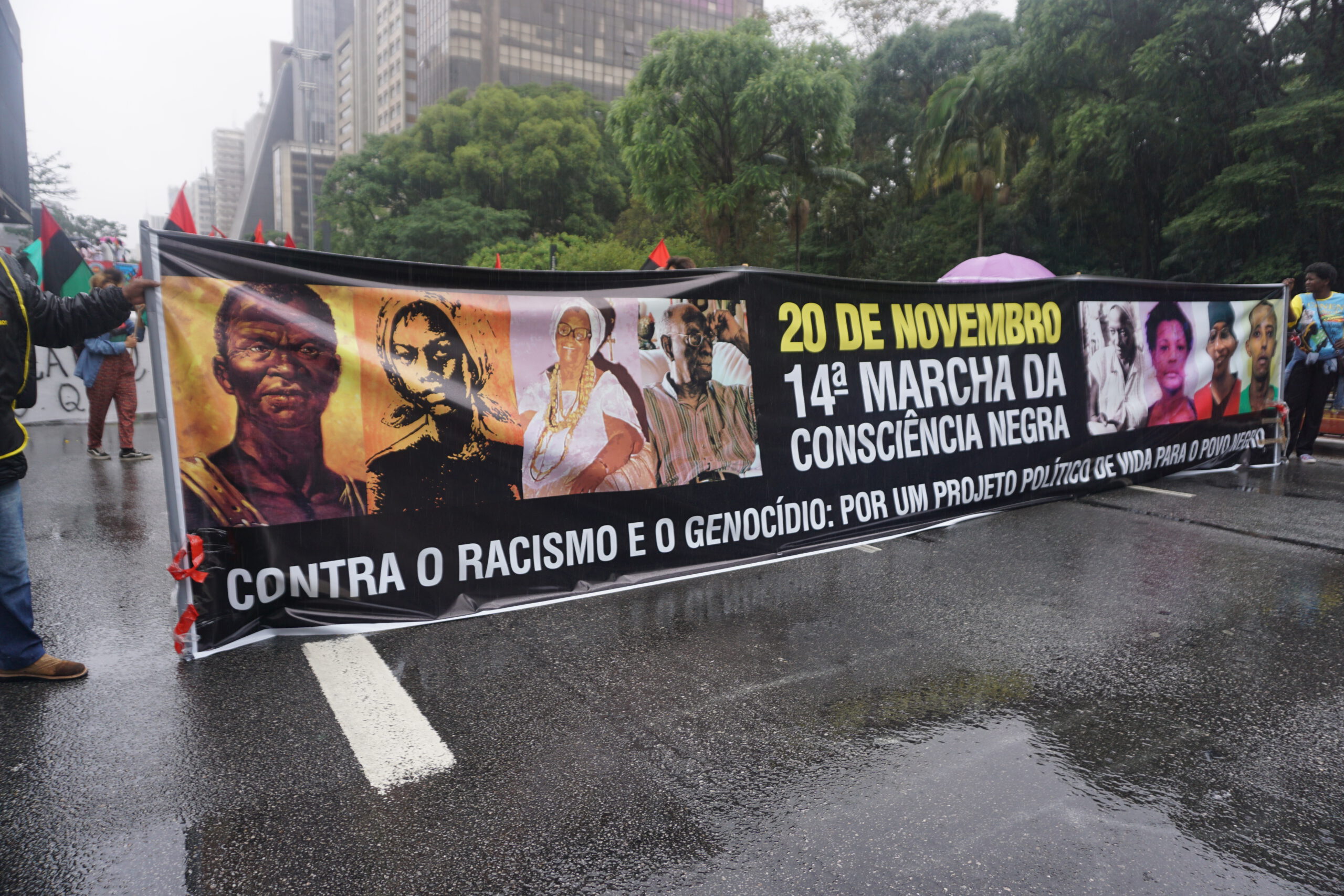Black Consciousness



When November rolls around in Brazil, Afro-Brazilians know what time it is. It’s Black Consciousness Month. During this month, debates, lectures, awards ceremonies, and festivals fill the calendars of anyone who loves and respects the Afro-Brazilian culture, resistance, and history. I’ve spent the last two years celebrating Black Consciousness Month in Brazil and I’ve come to cherish it even more than my own country’s black history month. Instead of simply glorifying civil rights heroes, Afro-Brazilians use it as an opportunity to celebrate their modern-day accomplishments and examine the state of black people in Brazil.
The roots of this month go all the way back to the 17th century, when Zumbi dos Palmares, a leader of a Black Quilombo community, died defending his community from Portuguese invaders on November 20, 1695. The Palmares Quilombo, located in current-day Alagoas, Brazil, was a self-sustaining community composed of thousands of escaped slaves from nearby plantations. This community survived more than 100 years of attempted invasions by the Portuguese. Zumbi served as its last leader before he died in 1695 and the community was destroyed.
Today the word “quilombo” has great meaning for Afro-Brazilians. It not only refers to a self-sustaining community of former enslaved Afro-Brazilians but it also carries the symbolism of “resistance” and “survival.” A group of modern-day quilombos in Rio Grande do Sul decided in the 1970s that November 20 should be the Dia de Consciencia Negra—Black Consciousness Day. By 1978, the entire black movement had signed on to recognize the day. On the 300th anniversary of Zumbi’s death in 1995, more than 30,000 members of Brazil’s Black movement marched in Brasília to demand improved conditions for blacks in the country. The national government started to honor the day in 2003. Thus, November 20 is acknowledged as the Day of Black Consciousness throughout Brazil. Since 2003, some states and cities have even honored it as an official holiday. Indeed, it bears great semblance to Martin Luther King, Jr. Day in the United States.
November wasn’t always Brazil’s “blackest” month. Until the 1990s, May was the most active month on the calendar for blacks in Brazil. Princess Isabel freed enslaved blacks in Brazil on May 13, 1888, ending more than 350 years of slavery in the country. On that day, thousands of people gathered in the center of Rio de Janeiro to celebrate. Over the next century, black Catholic brotherhoods, especially the one in Rio de Janeiro, celebrated May 13 because the abolition of slavery was central to their religious work.
Blacks, however, had little to celebrate after emancipation. After being officially “freed,” blacks in Brazil received little support for their integration into Brazilian society—no home, money, or education. This meant generations of black women as domestic workers and black men without meaningful jobs. For leaders in the black movement, a catch-all term for black people who actively fight for the advancement of Afro-Brazilians, May 13 is not a day to celebrate.
The biggest events in November happen in Rio de Janeiro and São Paulo, two of Brazil’s biggest cities. In Rio de Janeiro, capoeira dancers, afoxé groups, and members of the black movement gather at dawn on November 20 to wash Zumbi, a large monument that was dedicated in 1982. The night before, samba and black parties blanket the city because the holiday gives Cariocas a day off of work. In São Paulo, the Black Movement holds a march along Avenida Paulista that typically attracts thousands of people. At last year’s march, people carried posters that decried racism and the genocide of black men. Two black men arrived as bloodied boxers because they said they were fighting the genocide of black men in Brazil. The Zumbi dos Palmares University, Brazil’s only historically black university, celebrates the month and day with the Trofeu Raça Negra awards ceremony. Since 2003, the university has honored black and white Brazilians who have done the most to help black people in Brazil. In Alagoas, near the original Quilombo dos Palmares, the state holds a ceremony dedicated to Zumbi.





